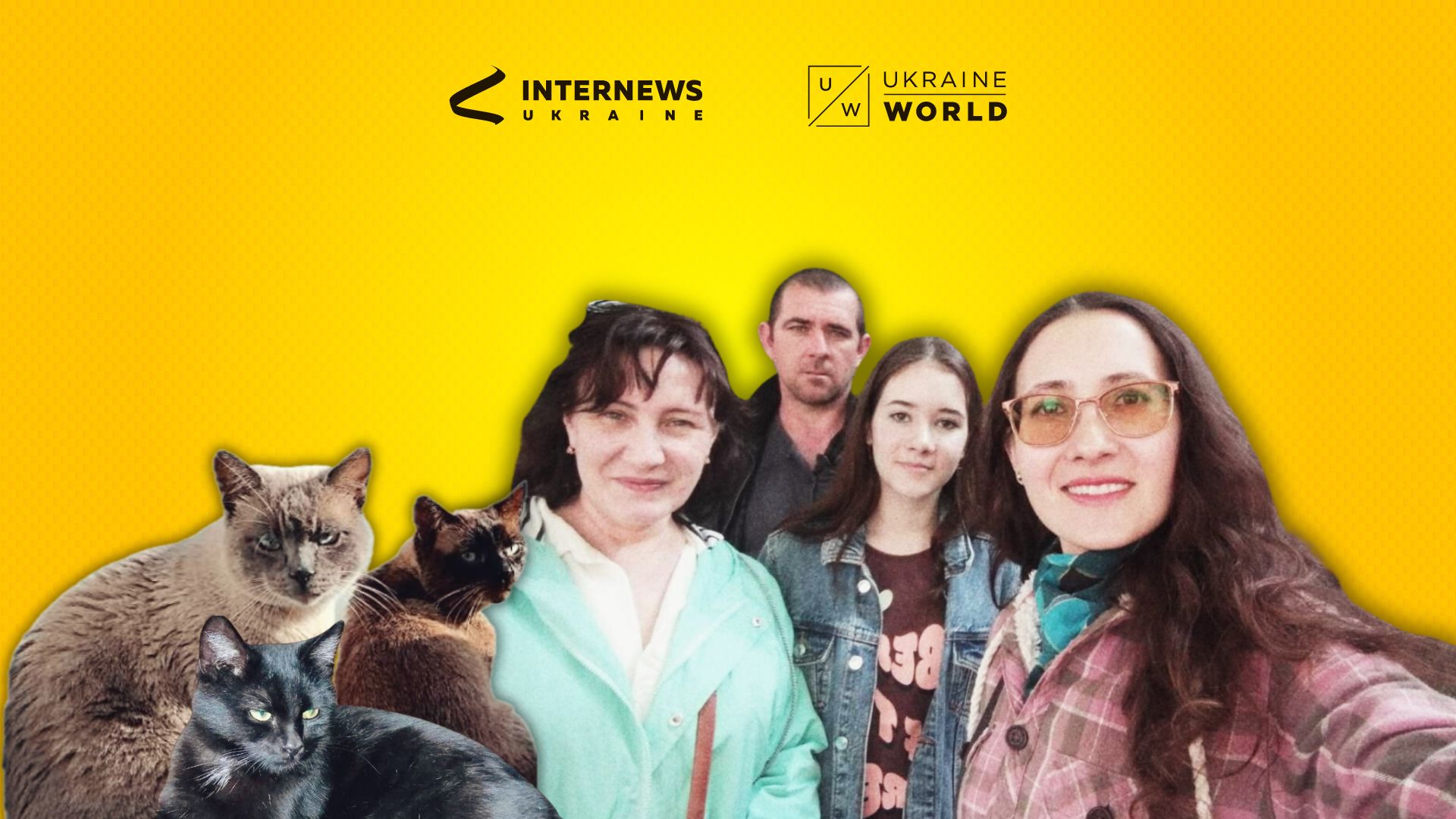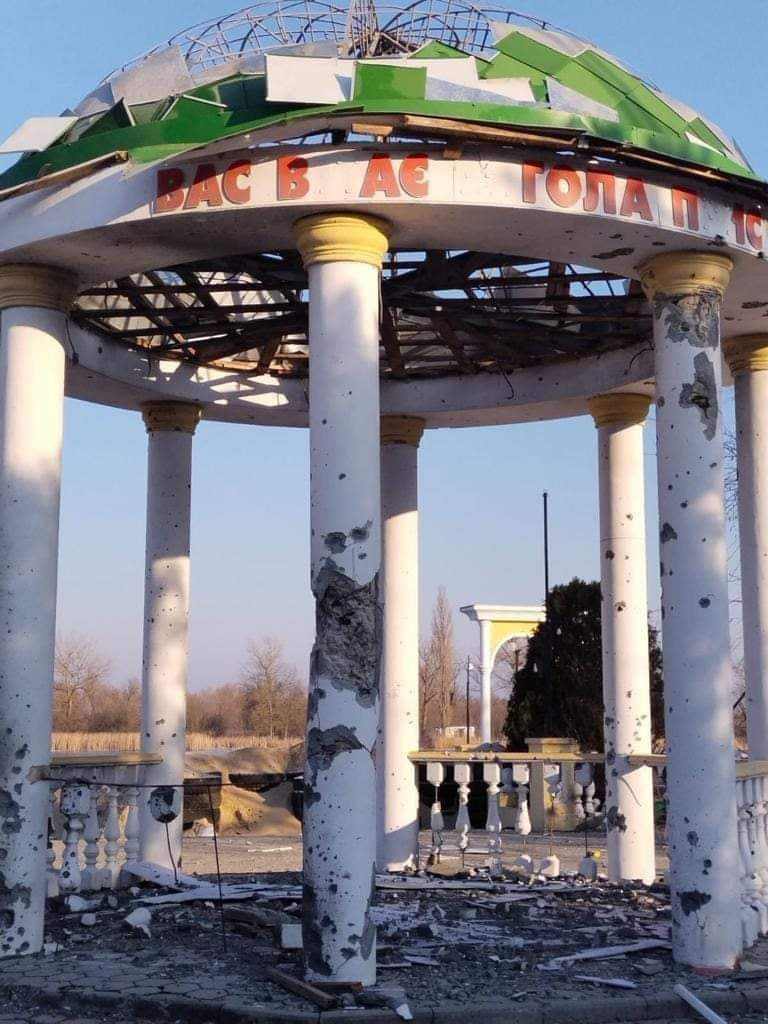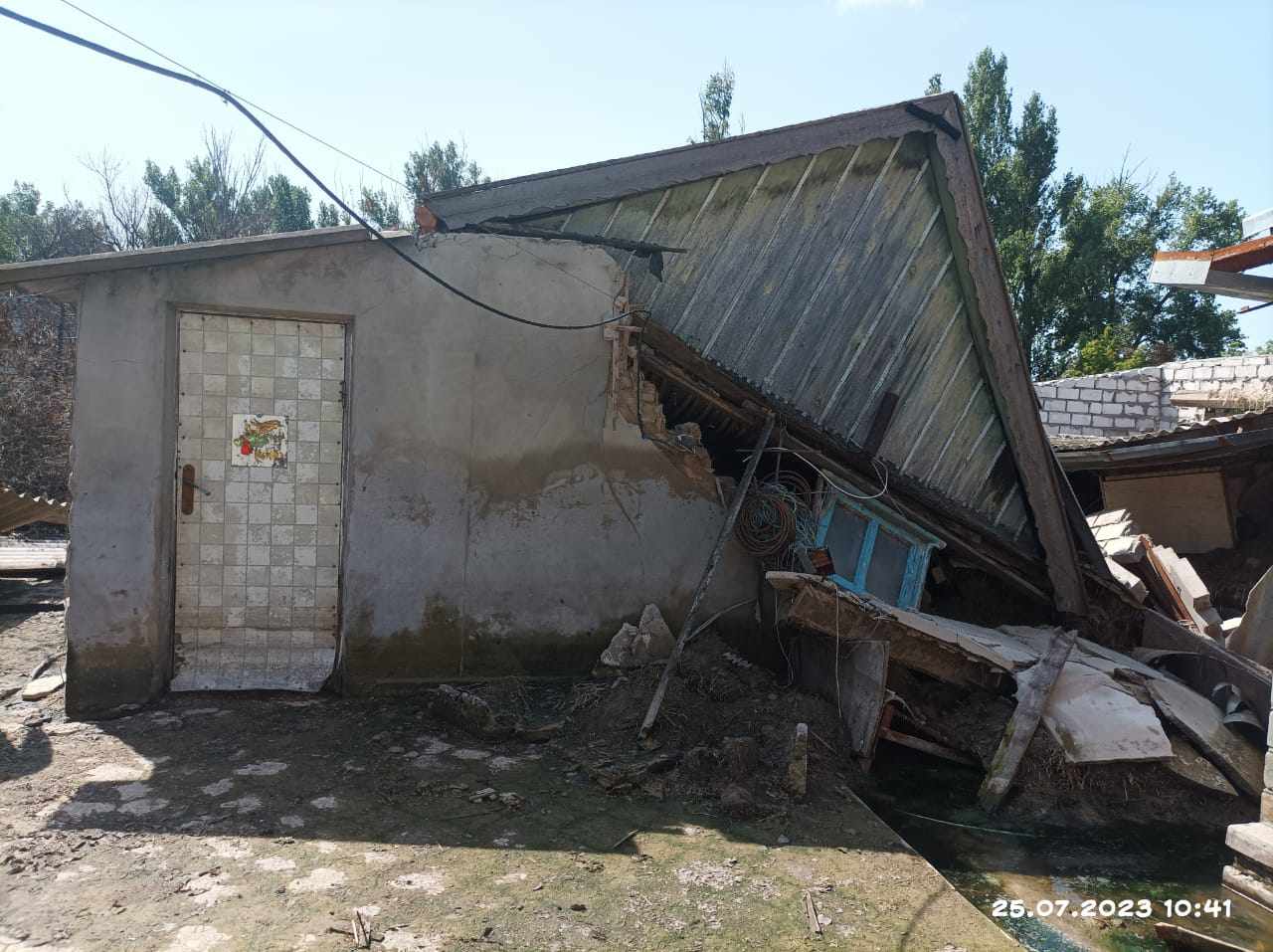
What should a family of four pack, unsure whether they will return home again? Not to mention their three cats, which, of course, come with them. Leaving a house they built, all the things they loved, selling a farm, their life's passion, and spending the family's year income -- that is what fleeing costed the family this story is about.
"When we were leaving, our hometown Hola Prystan was still on the very first frontline," Sofia explains.
Sofia and her family have spent 14 months under Russian occupation, which reached them at the beginning of the full-scale invasion. After part of Kherson oblast was liberated by the Ukrainian armed forces in 2022, the frontline relocated to their city, making the life of locals even more impossible.

"The hostilities took place there, and we were constantly shelled. And this is still the same today. In addition to this, large damage was done to the city after the Kakhovka dam flood. There is still water in some places. It's almost hell there now."
Sofia's family left the occupied territory before the flood. Later, they heard from friends that only a peak of the roof, rising above the water, reminded flood witnesses of their house.

The family had been waiting for Ukraine's liberation for over a year. Sofia says, there were times when Russian troops paid no attention to the residents, and life was less or more peaceful.
However, on the 30th of May 2022, Russian authorities cut off all kinds of communication at once: mobile connection, Internet, radio, and television. That is when Sofia's family sank into isolation.
"No one had any idea what was going on in our city, and Ukrainian media couldn't reach us."
The situation then deteriorated for everyone: medicine ran out, hospitals were closed, food was scarce, etc.
As an allergic and asthmatic, Sofia could not afford to skip a dose of medicine. This was when the group chats in messengers came in handy. People were using the chats to share medication.
Later, she claims, the Crimean Gypsies began selling medicine. Some necessities became available as a result, but prices skyrocketed mercilessly.
Sofia experienced the shortage of medicine until the day she left. And if specialists' help was needed, the only option was to go to doctors' homes.
"Ukrainian doctors worked until the last. They were told that there would not be salaries at all, and their hospitals were closed. Anyway, they stated they would simply work as volunteers. Our pediatrician was the same, and she didn't leave because she was the only pediatrician in the city. She was killed right in her home by mortar fire."
From those same group chats, people knew if someone or no one was killed after the city trembled from bombardment.
We have many injured and dead people. We've always been sharing information among ourselves somehow, communicating, and even went to visit each other under shelling. Our people are unbreakable, that's for sure.
Coming out of this mess was a challenge, but with a good ending -- Russia let the family leave. Maybe, it was because much earlier all of them underwent Russian filtration. Sofia's husband was taken away for 2 days, thankfully, no harm was done to him.
Returning to the first question, what did they manage to take?
Sofia says, mostly warm clothes, as they've chosen to migrate to Denmark. She also made one more smart choice -- taking all the family photographs. If she hadn't, the entire family's history would be far gone with the devastating water of the Kakhovka dam.
"Some things we could take, and some we left to our friends to keep. We thought about marauders, artillery fire, anything, but we've never thought about water, that it may come."
And, of course, three cats took up a lot of space in a ZAZ Sens car, by which the family traveled over 6000 km.
"Actually, we had only two cats. But before leaving, a small kitten appeared in our yard, untidy, scared, and hungry. We cured him and I said, well, since someone threw him out once, we can't do the same again. He appeared to be a very loving pet. But you know, it is very expensive to keep cats in Europe."
The furry three was the one and the only reason why the family was refused rent many times. Once, they were so desperate, having no place to live in and at the same time obliged to undergo animal quarantine, that they were going to come back home. Leaving the cats to someone else was never an option.
Now that they found an apartment and job in Denmark, they still consider it to be a temporary island of calm life and a possibility to earn money for rebuilding their house.
Ukraine cannot fight the war and refund all destroyed buildings at once, we understand that.
The family's hard work paved the way they lived in Ukraine. Thus, they stick to this virtue wherever they are, and to their sweet memories of Ukraine, like a blue-yellow flag waving from neighbor Bilohrudiv island, never losing faith in a better tomorrow.
